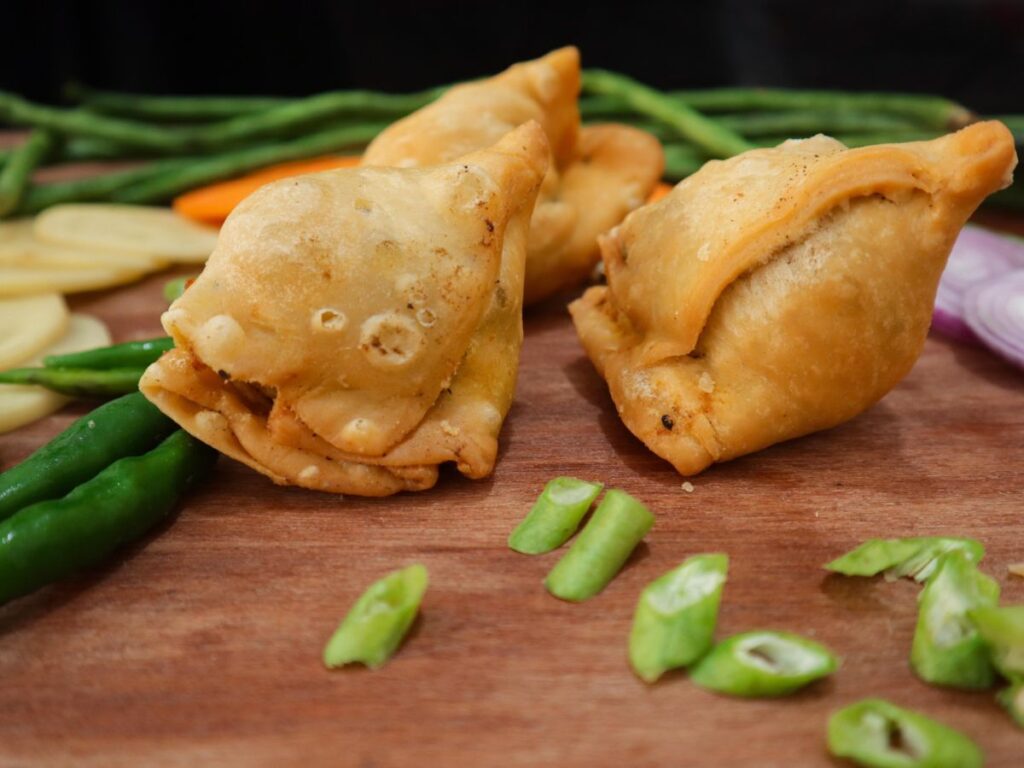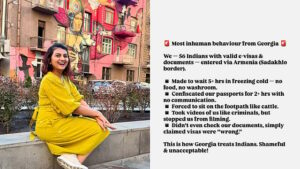Crispy, Spicy and…Illegal? The Surprising Reason Samosas Are Banned in This Nation

Crispy, Spicy and…Illegal? The Surprising Reason Samosas Are Banned in This Nation
Samosas are one of the most loved snacks in South Asia. From India to Pakistan and Bangladesh to Nepal, these crispy golden triangles filled with spicy potatoes, peas, or even meat are a favorite treat, especially when served hot with tea. Over time, samosas have also found fans in Europe, the Americas, and the Middle East. But according to reports, there is one place in the world where eating a samosa can actually get you into trouble, Somalia.
Is Samosa Banned In Somalia?
In 2011, Somalia’s hardline extremist group Al-Shabaab, which is linked to Al-Qaeda and controls parts of the country, reportedly banned samosas. Locally known as “sambusas,” these snacks were suddenly declared off-limits. The group claimed samosas were “too Western,” and anyone caught making or eating them could face punishment.
Reports suggest that the militants found the triangular shape of the samosa offensive. They allegedly believed it looked like the Christian symbol of the Holy Trinity and therefore called it “un-Islamic.” Though Al-Shabaab never officially explained the ban in detail, media reports widely stated that this supposed religious symbolism led to the decision.
A Snack With a Long History
The samosa’s story, however, is far older and much richer than this modern-day controversy. According to reports, the snack is believed to have first appeared in Egypt. From there it traveled to Libya, across the Middle East, and then to Iran. By the 10th century, Arab traders had brought it to India.
Iranian historian Abolfazi Behaki even mentioned the dish in his book Tarikh-e-Behaki. Later, poet and musician Amir Khusro noted that samosas were a favorite treat in the royal Mughal courts of 13th-century India. The dish was once very popular in Iran until the 16th century, but over time its presence there slowly faded.
A Beloved Treat Turned Controversial
For most of the world, the samosa continues to be a simple and delicious snack, something to enjoy with evening tea or at celebrations. But in Somalia, it became the target of extremist ideology. Reports say that under Al-Shabaab’s control, making, selling, or eating samosas was treated as a crime.
This ban shows how even something as ordinary as food can become caught in politics and religious fundamentalism. What people in India and many other countries see as a symbol of comfort and tradition was, in Somalia, turned into something forbidden because of its shape.
The idea of banning such a beloved snack may sound strange to many, especially in countries where samosas are an everyday favorite. But this example highlights how food traditions can be interpreted in unexpected ways. According to reports, the triangular shape that most people see as nothing more than a tasty pastry became a symbol of controversy in Somalia.












